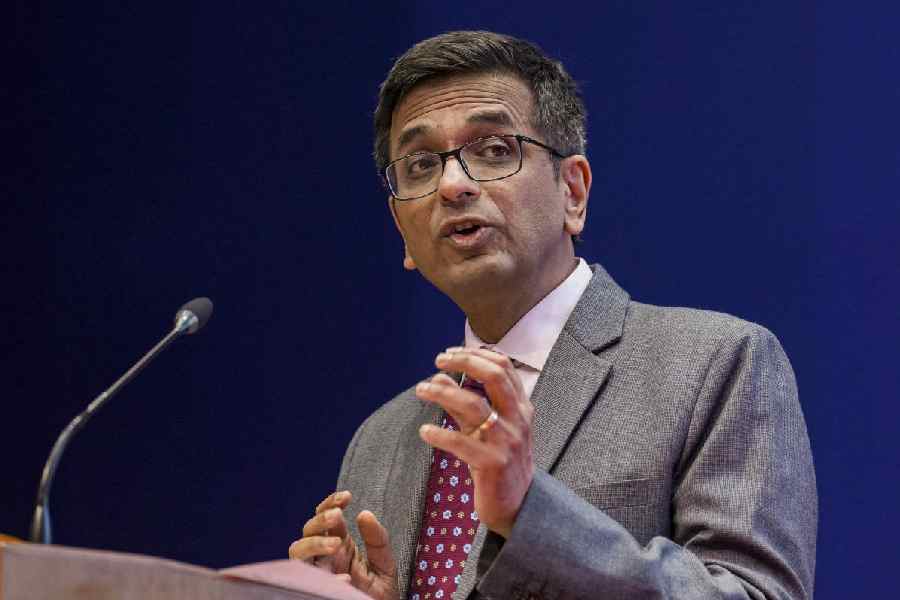In a judgment delivered in 2021, Justice D.Y. Chandrachud had observed:
“Judges speak through their judgments and orders. The written text is capable of being assailed. The element of judicial accountability is lost where oral regimes prevail.”
This is why his comments on seeking divine support to decide the Babri Masjid dispute in his native village in Maharashtra were surprising. Not because judges in private moments cannot pray for strength, courage or determination to whichever deity they believe in. But because such moments are necessarily private. A public declaration of it in a speech is unbecoming of a judge. Especially when it fails to meet the high standards of probity in judgeship the judge himself sets for others.
It is also surprising for another reason. Though the speech was presumably given as part of a visit to his home state, it ought not to have escaped the Chief Justice of India that the speech was being delivered at a time when elections had been announced in Maharashtra and the campaigning had begun.
The judgment of the Supreme Court decreeing that the land where the Babri Masjid stood should be given to the Hindu parties, and the consequent building of the Ram Mandir there, are live campaign issues. For a judge to refer to such a politically salient judgment, even in a moment of personal reflection, despite not intending anything remotely political, was best avoided at this time.
Most damaging is the substance of the comment, perhaps made in a rare moment of candour, when the CJI relaxed his judicial guard. Translated from Marathi as “I sat before the deity and told him he needs to find a solution” when deciding on the Ram Janmabhoomi-Babri Masjid dispute, the statement may have been intended as an honest confession of a believer. But when declared publicly, the indication that a judgment on a bitter communal issue was determined by the faith of the judge (in this case, a Hindu), rather than the dictates of legal reason does a grave disservice to the legitimacy of the rule of law and the Supreme Court as its protector.
Reading the judgment, one will find in it a scholarly treatise on Hindu Law. It rejected the notion that the birthplace of Ram itself could be a juristic person. Instead, it found on the basis of evidence, not belief, that both Hindus (at least till 1857) and Muslims worshipped in the inner courtyard, with Hindus alone worshipping in the outer courtyard. Stating now, five years later, that the judgment was divinely ordained with the judges themselves not finding a path for many months, demeans the meticulous reasoning his own bench employed. There will always be two views on whether the reasons are sound or not — but the statement by the CJI takes the judgment beyond the realm of reason into the realm of divine inspiration.
In such a realm, argument is replaced by belief, and reason by faith. If the judgment is an act of God, then a citizen may legitimately wonder — whose God? What did God say? How did God show the way? Neither can Justice Chandrachud honestly provide an answer to these questions nor will his answers satisfy many.
This is precisely why the rule of law replaced the rule of God and kings in modern democracies — to provide a framework that everyone, irrespective of their faith or belief can engage in. It is ironic that the CJI, the ultimate guardian of the rule of law in India, has damaged its cause. His statement has provided the perfect fodder for all the critics of the judgment (disclosure: on the whole I supported the reasoning in the judgment itself, but not its full outcome) who saw it as a victory for Hindus by a Hindu-majority bench in a Hindu-majority country. The statement, more than the judgment itself, will damage the legitimacy of the Supreme Court and the rule of law in India in the years to come. This is why it is an unwritten convention that judges do not speak about their judgments in public — they let their words do the talking.
The CJI’s remarks were also reminiscent of a similar comment made by one of his predecessors. Former CJI P.N. Bhagwati had controversially claimed that when he was writing his judgments, he “was only writing what my god dictated. Bhagwan (Sathya Sai Baba) held my hand as I put pen to paper.”
Maybe that is why the Ayodhya judgment does not list the name of any judge as its author. The judgment came from above.
Arghya Sengupta is research director, Vidhi Centre for Legal Policy










